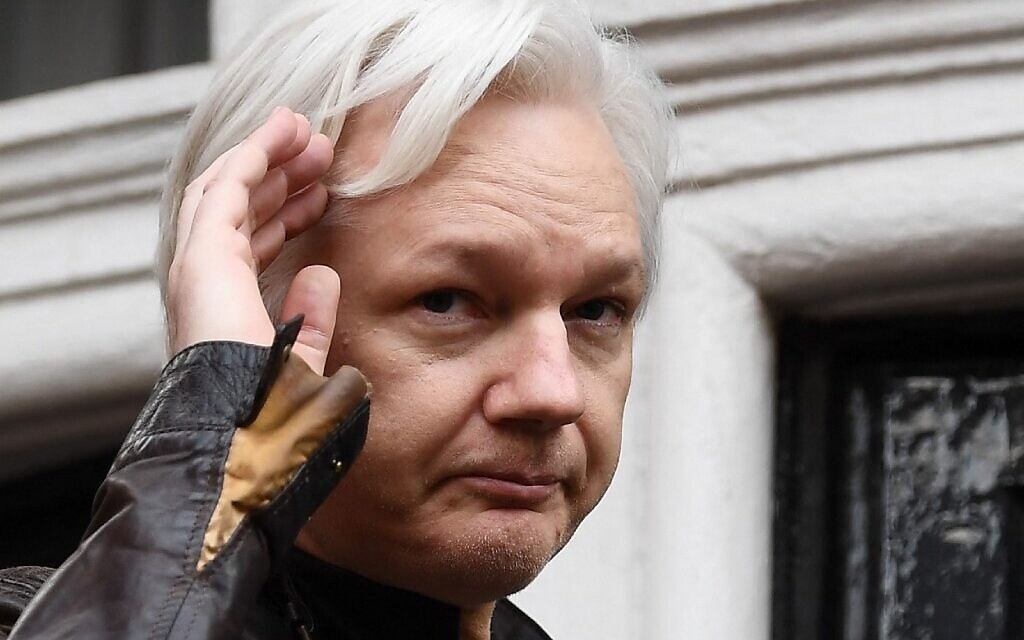Assange extradition highlights human rights hypocrisy: Ex-Ambassador
Drawing attention to the double standards in the latest development in Assange's long struggle could pressure officials to halt the extradition.
-

Assange extradition highlights human rights hypocrisy: Ex-Ambassador
Former UK Ambassador Peter Ford told Sputnik that the decision by a London court to extradite Wikileaks founder Julian Assange to the US exposes the UK Prime Minister Boris Johnson's government's double standards and hypocrisy in criticizing Russia over the Ukraine crisis.
"The latest twist in the tale highlights the hypocrisy of a British government which sanctimoniously denounces Russia for suppression of free speech and war crimes while itself persecuting a journalist for revealing war crimes committed by a UK ally," Ford said.
On Wednesday, the Westminster Magistrate's Court ordered Assange's extradition to the United States, where he faces up to 175 years in prison. Assange is in poor health and suffered from a stroke while in British custody.
"It would be ironic, to say the least for the UK to extradite Assange for publishing leaks about US war crimes at just the moment when the UK propaganda machine is attempting to exploit to the maximum alleged Russian war crimes in Ukraine," Ford said.
Read more: Order against Julian Assange a 'farce called British justice' - Russia
Drawing attention to the double standards in the latest development in Assange's long struggle to avoid being deported back to the United States for exposing so many state secrets might cause UK Home Secretary Priti Patel, a pro-American hardliner, to hesitate in implementing the move, Ford said.
"While it is unlikely that considerations of consistency and decency would deter an un-shameable British government from proceeding to extradite the journalist, the thought that it might prompt accusations of double standards and thereby undermine the pro-Ukraine propaganda will likely incline the government to stall for the moment on any decision," he said.
In any scenario, Assange's legal team has the option of appealing other aspects of the previous court judgments, which effectively required the Westminster Magistrates Court to allow the Home Secretary to extradite, Ford added.
"And if and when the case does go to the Home Secretary for final decision Assange's lawyers can also introduce fresh evidence, which they cannot in court," Ford added.
Assange's defense team would not rule out petitioning the European Court of Human Rights to seek a stay of extradition, Assange's lawyer, Carlos Poveda, told Sputnik on Thursday.
Former ECHR justice condemns Assange's sentence for Assange in the US
Former European Court of Human Rights (ECHR) justice Bostjan Zupancic told Sputnik that Wikileaks founder Julian Assange's 175-year jail sentence in the United States was "draconian" and "far beyond reasonable."
On Wednesday, the Westminster Magistrate's Court in the United Kingdom formally granted Assange's extradition to the United States. Priti Patel, the UK Home Secretary, will now decide whether or not he will be extradited. Assange's attorneys have until May 18 to file objections to his extradition with Patel.
Even if the UK Home Secretary approves the extradition order, Assange can challenge it through judicial review, which includes a judge determining whether a public body's decision was valid.
Read more: Julian Assange: a Timeline
"The draconian 175 years of prison he may receive in the [United] States is way beyond reasonable," Zupancic, who also served on the Constitutional Court of Slovenia, said.
The legal expert also addressed the topic of diplomatic guarantees, which the US has proposed to the UK to persuade London that Assange will not be mistreated by the US penal system.
"In the European court, we had cases on extradition where the diplomatic guarantees from the state were not sufficient," Zupancic explained.
The US is seeking Assange on "espionage" charges following the publication of thousands of confidential documents by Wikileaks that shed light on war crimes committed by American forces in Iraq and Afghanistan.

 4 Min Read
4 Min Read










